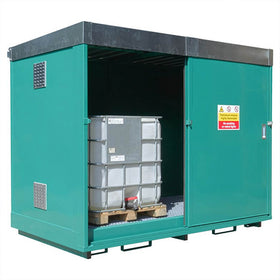Niger Delta's Black Gold Rush: Counting the Cost of Environmental Neglect
It has emerged this week that an oil spill from an ExxonMobil pipeline in the Akwa Ibom state of Nigeria has spread up to 20 miles from it source, polluting the waters that are integral to the survival of the local fishing industry. This oil spill is the latest in a chequered history of oil production in the region which, according to the United Nations Development Programme, has seen thousands of spills both big and small and a lack of effective spill containment.
For more than nine decades multinational oil companies have been conducting operations in the Niger Delta to extract the large amounts of crude oil that lay beneath the Delta Basin. And while they have achieved much success in extracting the oil, the environmental and social implications have been far reaching and are still ongoing today with oil companies seemingly acting with complete impunity.
Large areas of mangrove forests have been destroyed by oil spills which seep deep into the soil contaminating the surrounding vegetation and underground watercourses. In addition, the depletion of fish stocks has been caused not only by overfishing but also by the pollution of waters from leaking and poorly maintained oil pipelines. Life expectancy has reduced drastically in the region as people become increasingly sick from consuming contaminated water and food.
So what preventative measures is the Nigerian government taking to reduce the number and the impact of these spills? Last year Nigeria’s oil regulator, NOSDRA, recommended that the Nigerian parliament fine Shell over £3 billion after a tanker spilled 40,000 barrels of oil into the Atlantic Ocean. However, Shell refuted the recommendation stating that they hadn’t contravened any Nigerian laws and that the cause of the spill was sabotage.
While it’s true that many of the spills in the Niger Delta have been linked to the criminal acts of militant groups, Shell have also been criticised for the laxity of their spill response procedures in cleaning up the oil. A UN report from last year found that “The control and maintenance of oilfield infrastructure....has been and remains inadequate.” Shell was accused of taking four years to contain and clean the spill while the thousands of villagers affected by the spills in the Ogoninland region are still awaiting a compensation package from Shell.
Last year’s report from the United Nations Environment Programme evidenced that oil companies had failed to effectively contain and clean up oil spills from up to 40 years ago, despite numerous attempts. It’s executive director said that Nigerians has “paid a high price” for the riches afforded by the black gold, but that any attempt to clean up the affected region would cost initially around £614 million and take upwards of 25-30 years.
http://www.yellowshield.co.uk



